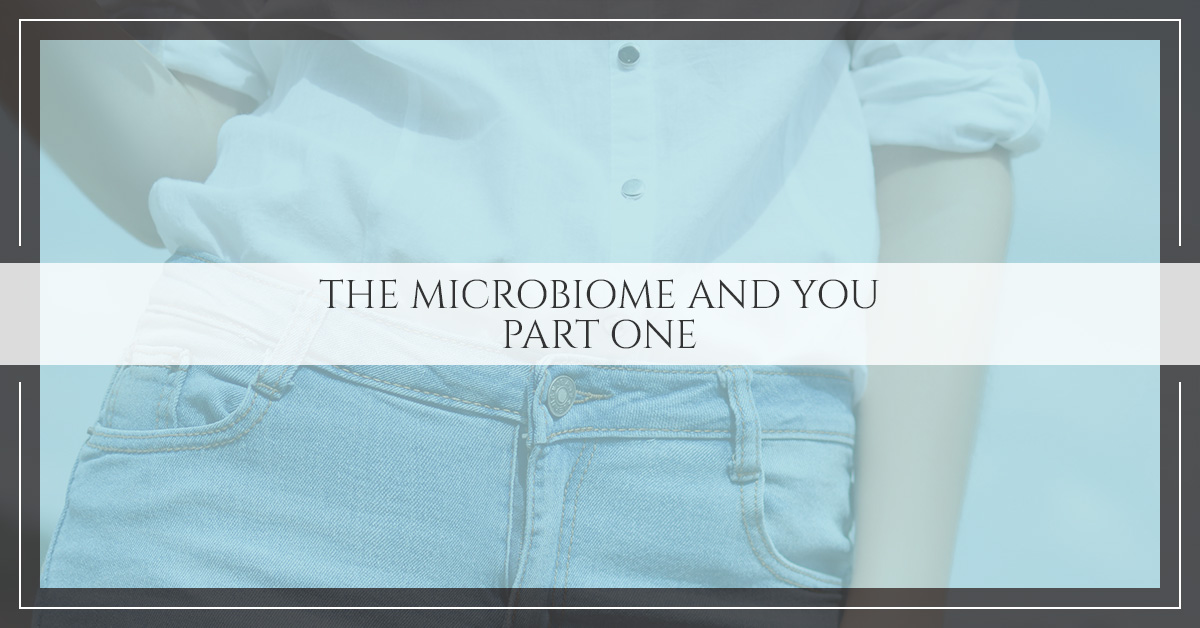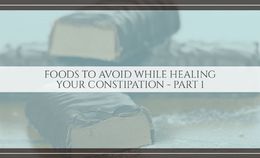Exploring our body’s vast complexities is what makes medical innovation so exciting, and our current understanding of our internal ecosystem — the microbiome — is just being uncovered. The knowledge we once held about common diseases and disorders are now being linked to gut health, so the accepted adage surrounding it all is, heal the gut to heal the health issue.
Healing Digestive Illness takes the convoluted information inundating the media about gut health and provides natural solutions for leaky gut, IBS, and Crohn’s disease. Russell Mariani and his team have devoted their lives to health and wellness through food education so that people can find optimal health and live their best lives. In today’s post, we’ll begin to scratch the surface of the microbiome and how it relates to gut health.

The Basics of the Microbiome:
Every person has a microbiome — in fact, we are composed of more bacteria than human cells! The microbiome is a beautiful internal ecosystem comprised of microbes. This microbial community inhabits every part of our bodies that are exposed to the external environment including our mouth, nose, skin, and vagina, and they colonize in the gut where a constant supply of nutrients are always available. To put a number on the microbes roaming your body, there are roughly 10 to 100 trillion cells in every person, most of them residing in the digestive tract.
The microbiome is unique to each individual and is, in sense, a genetic imprint because it helps make up our DNA, hereditary influences, and predispositions to diseases. If you’re having a hard time conceptualizing the microbiome, because it’s not necessarily location-specific, an organ, large in size, and has numerous roles, just break down the word for clarity. Micro means small, and biome means a habitat — so the microbiome is a small habitat for living microbes in your body.
Our microbiomes are first developed when we greet our new environment through our mother’s birth canal and nourished thereafter by breast milk — these are the foundations in which our microbiomes are established. As we develop, dietary, familial, and environmental factors all contribute to our microbiome to help cultivate an ecosystem that will impact our health over our lifetime.
Why Does the Microbiome Matter?
Both healthy and harmful bacteria can roam our internal environment, and when the balance is tipped and the harmful bacteria flourish, naturally, illness takes root. What really needs to be understood is that bacteria is beneficial to us, and our attempts to sterilize our environment, and with the increased usage of antibiotics, disrupts the natural balance and kills beneficial bacteria. As more research continues to develop, scientists are finding that microbes are linked to virtually every process in our bodies, including immune health, psychological concerns, and disease states — obesity being of concern — so the more we understand how it functions, the better we can treat illness and support optimum health.
Research has found that there is a symbiotic relationship between the microbiome and us. We provide a cozy environment with plenty of nutrients, and the microbes, in turn, give us a by-product to maintain healthy biological processes.
Because we’re still in our infancy in understanding the microbiome, it’s exciting to see where it progresses and how people will ultimately find health and wellness through it.
Throughout this post, we scratched the surface on what the microbiome is and how it influences our health, in addition to why it matters. We’ve found that the microbiome is unique to everyone and is crucial in the support it gives us when it’s in an ecosystem set up to thrive. It matters and it impacts us on a deep, health level, including our immune health, mood and psychological issues, and disease states. Every day new studies are finding direct links to obesity, dementia, and autoimmune disorders when poor gut health is found.
Making wise and protective health decisions will only benefit your microbiome. Stay tuned for part two as we examine specific ways to create a healthy gut ecosystem!
In part one, we explored the basics of the microbiome, why gut health matters and how it is linked to our health. In today’s post, we’ll further explore the complexities of the microbiome, and look at how to support gut health through foods and lifestyle measures.
I
How Gut Health is Linked to our Microbiome
Because bacteria prefer to colonize in our guts, a large majority of the microbiome exists in that area. The importance of a healthy gut cannot be overemphasized; poor gut health directly leads to autoimmune issues, leaky gut syndrome, dementia, arthritis, heart disease, and an overall decrease in well-being.
The microbiome is a fluid system — it flourishes when we make honoring nutrition choices, and halts with high-stress levels, poor lifestyle and nutrition choices, and environmental toxins.
How to Support Gut Health
Your diet is the gateway to health, especially gut health. It is through healthy food that you establish your microbiome and foster good bacteria — the more a healthy diet is supported, the more healthy digestion, metabolism, and body weight thrive.
- Foods that disrupt gut health:
- Processed foods
- Processed and refined oils (canola, soybean, corn, etc)
- Refined carbohydrates
- Added Sugars
- Hydrogenated and trans-fats
- Foods that support gut health:
- Prebiotics (fresh vegetables, specifically beets, carrots, broccoli, kale, cabbage, etc)
- Probiotics (kefir, yogurt, kombucha, sauerkraut, etc)
- Fresh fruits
- Pasture-raised meat, and wild-caught fish
- Healthy fats (coconut oil, avocado oil, grass-fed butter, olive oil)
Aside from your diet, there are other measures you can take to support a strong and thriving microbiome, including:
Address your lifestyle - Make sure you’re getting plenty of movement and exercise, and work to lower your stress levels. Stress impacts the immune system and lowers its ability to fight off toxins, bad bacteria, and viruses.
Avoid antibiotics - Modern medicine is amazing, and antibiotics play a role in our health, but they’ve been prescribed for over 80 years now and have the ability to wipe out good bacteria. This not only affects the immune system, but it puts us at risk for allergies and other diseases. Use antibiotics only when they are needed because we live in an age where they’re overprescribed and miscalculated.
When Your Microbiome Is Unbalanced
When good bacteria is minimal, disease states and health issues surface. Because it is our internal ecosystem, when the environment is impacted, so are the microbes that inhabit it.
Inflammation Is the Origin of Most Health Issues.
Let that absorb and sink in — it is inflammation at the root of what you’re suffering from. A lifestyle that promotes inflammation balance protects your brain, is mood-enhancing, and balances hormones. Unbalanced gut health is related to many disease states, such as:
Brain disorders (dementia, Parkinson’s, Alzheimer's) - Cognitive decline is often triggered by systemic inflammation, compared to a balanced inflammation lifestyle that boasts improved memory, brain health, and overall longevity. There is even neuro-metabolic and neurochemical pathways that link directly to the digestive tract, sending and receiving messages both to and from the brain.
Autoimmune disease - These disorders cultivate when the body begins to attack healthy processes from an overactive immune system. Gut permeability opens, and leaky gut occurs which can spawn an autoimmune cycle.
Mood disturbances (anxiety and depression) - We touched on the gut-brain connection in brain disorders, but it can affect your mental state through the foods you consume. A poor diet directly affects your microbiome and neural activity, thus, impacting your mood, energy, and stress levels.
Joint pain - Studies have found that a healthier digestive tract supports healthy joints. It was also found that patients with arthritis have lower levels of beneficial bacteria, while other harmful strains are present.
Allergies - There are specific beneficial bacteria strains that diminish allergy effects both related to food allergies and infections involved in the respiratory tract.
Support your microbiome and watch it thrive when you address the foods that both harm and support it, while making conscious decisions in your lifestyle to foster healthy colonization. We looked at ways the microbiota can become unbalanced and how inflammation impacts your immune health, thus, your gut health.
The emerging field of bacteria is discovering how intricate and vast the microbiome is, and how it is linked to our overall wellness. To find health, seek out digestive wellness.
How will you use your nutrition to support your gut health? Comment your strategies below!
---
If you're battling IBS, Crohn’s disease, leaky gut syndrome, or chronic constipation, getting through a single day can be extremely trying. Russell Mariani has devoted his career to finding answers to treat and promote optimal digestive wellness.















